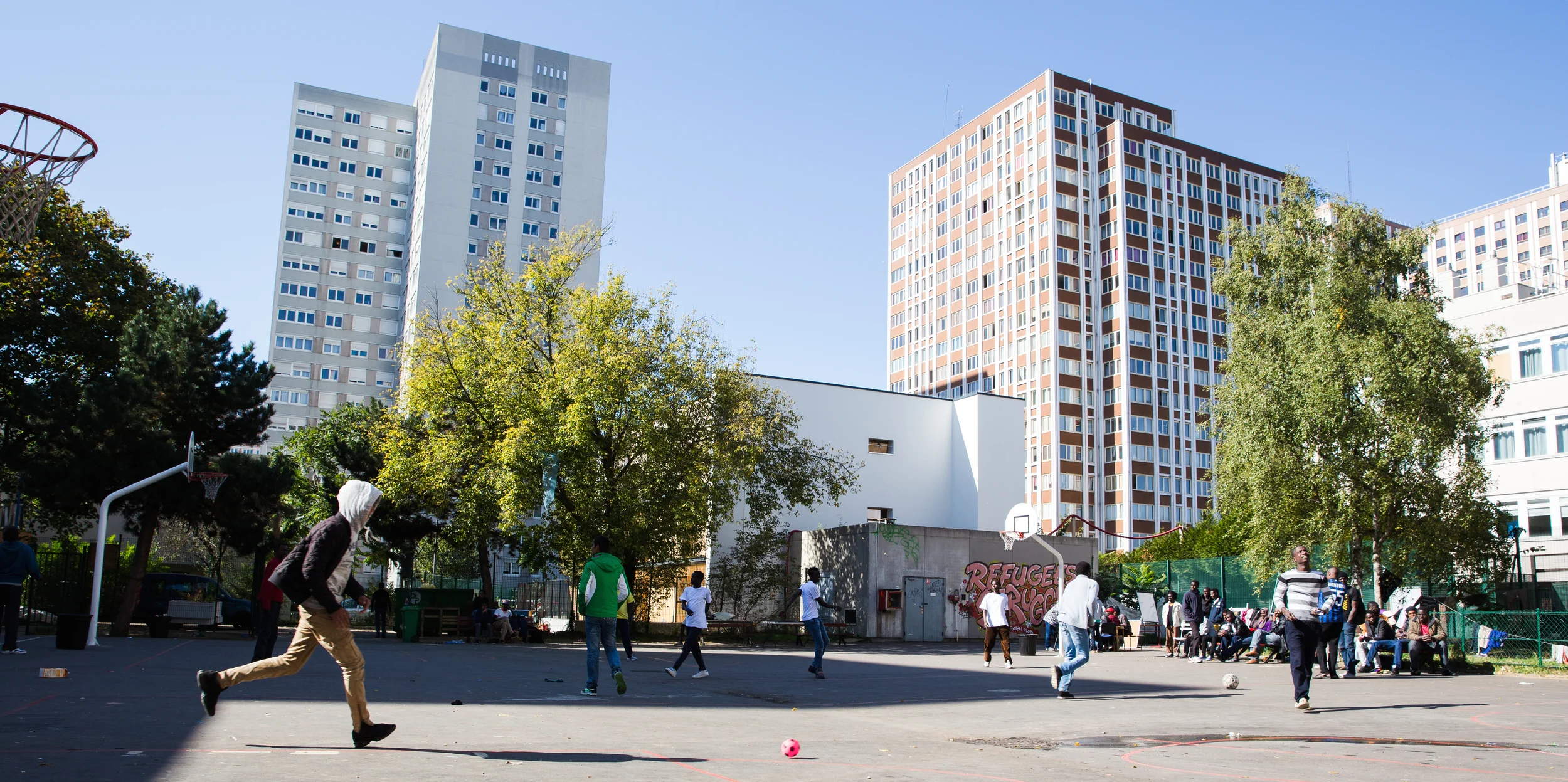By Anais Renevier in Paris
While Germany expects to receive up to one million asylum seekers by the end of 2015, France is preparing for only 65,000, the same number it received last year.
Just a few years ago, France had among the highest number of claims in Europe, but its lack of accommodation and support for asylum seekers as well as long wait times for applications to be processed have make it a less attractive option for many refugees.
Mohammad Salah, a 28-year-old from Sudan, arrived in France a year and a half ago.
“I dropped off my request for asylum 13 months ago, and I'm still waiting for the answer,” he told IRIN. “First I stayed in a hotel, but after four months I ran out of money, I started to sleep in the street and joined other migrants in camps.”
While the UK media fixates on the sprawling camps on the outskirts of Calais filled with migrants hoping to cross the Channel, the French capital is dealing with a lesser-known crisis of homeless asylum seekers.
““What matters for refugees is to know that they have a community they’re going to.””
Over the summer in Paris, migrants were evicted from three informal camps, including the one Salah was living in. Municipal authorities cited health concerns and said they were trying to find longer-term solutions, both for asylum seekers and economic migrants.
Along with the others, Salah was offered hostel accommodation for a month. “The hostel was very far away from downtown Paris, and there we didn't have any food donations,” he said. “So I went back to Paris and one day I heard about this high school.”
Salah is now among about 700 migrants squatting in the abandoned Lycee Jean Quarre, a former hotel school in the 19th arrondissement. It is one of the few remaining places in Paris where homeless asylum seekers can stay. But within the next couple of weeks, by the end of October, many will have to leave.
“It has been planned for a long time that this building will be turned into a library,” explained Séverine Guy from the local municipality. “Construction work will start as planned, but until the library is opened, we're thinking of opening 80 to 100 beds to host refugees.”
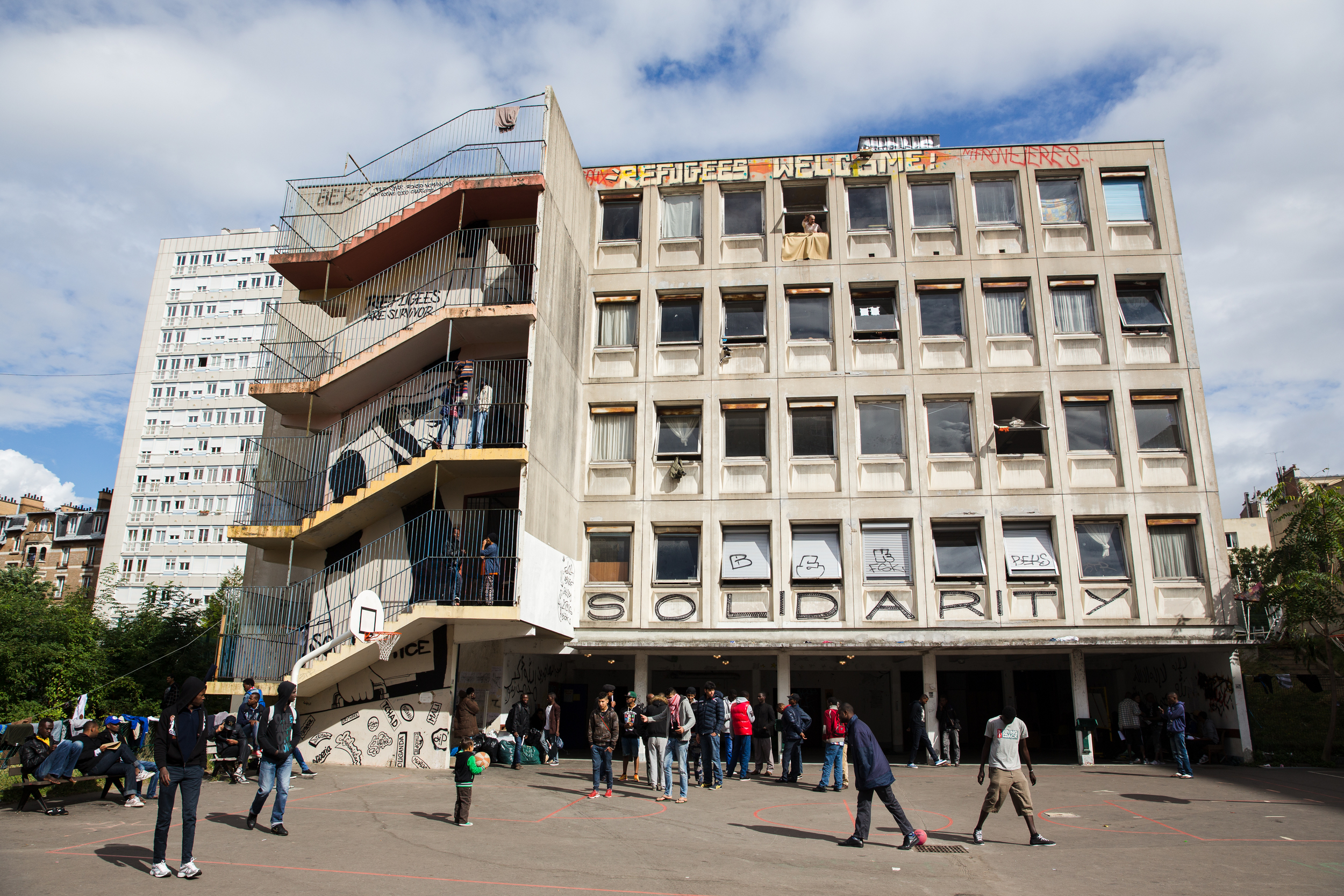
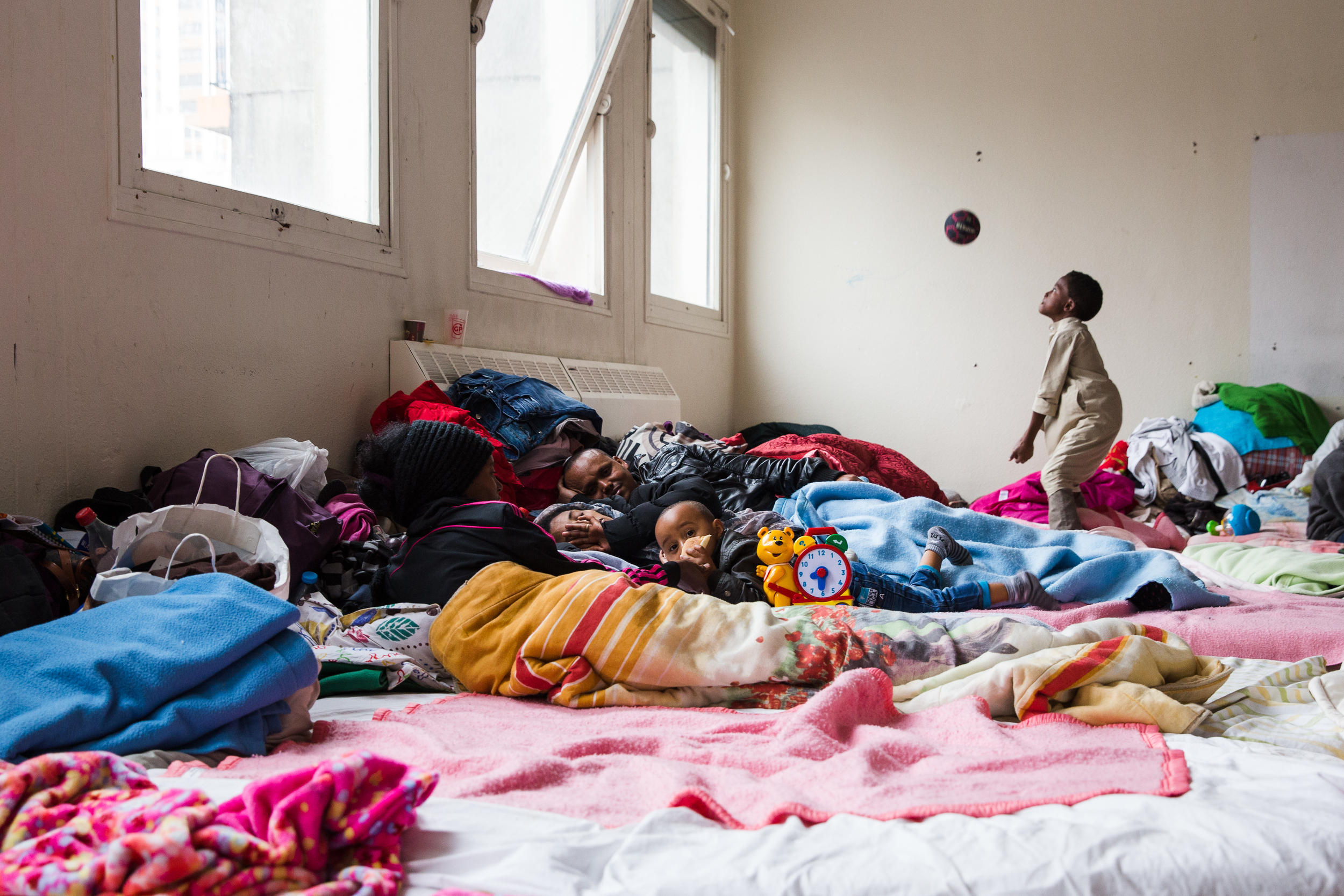
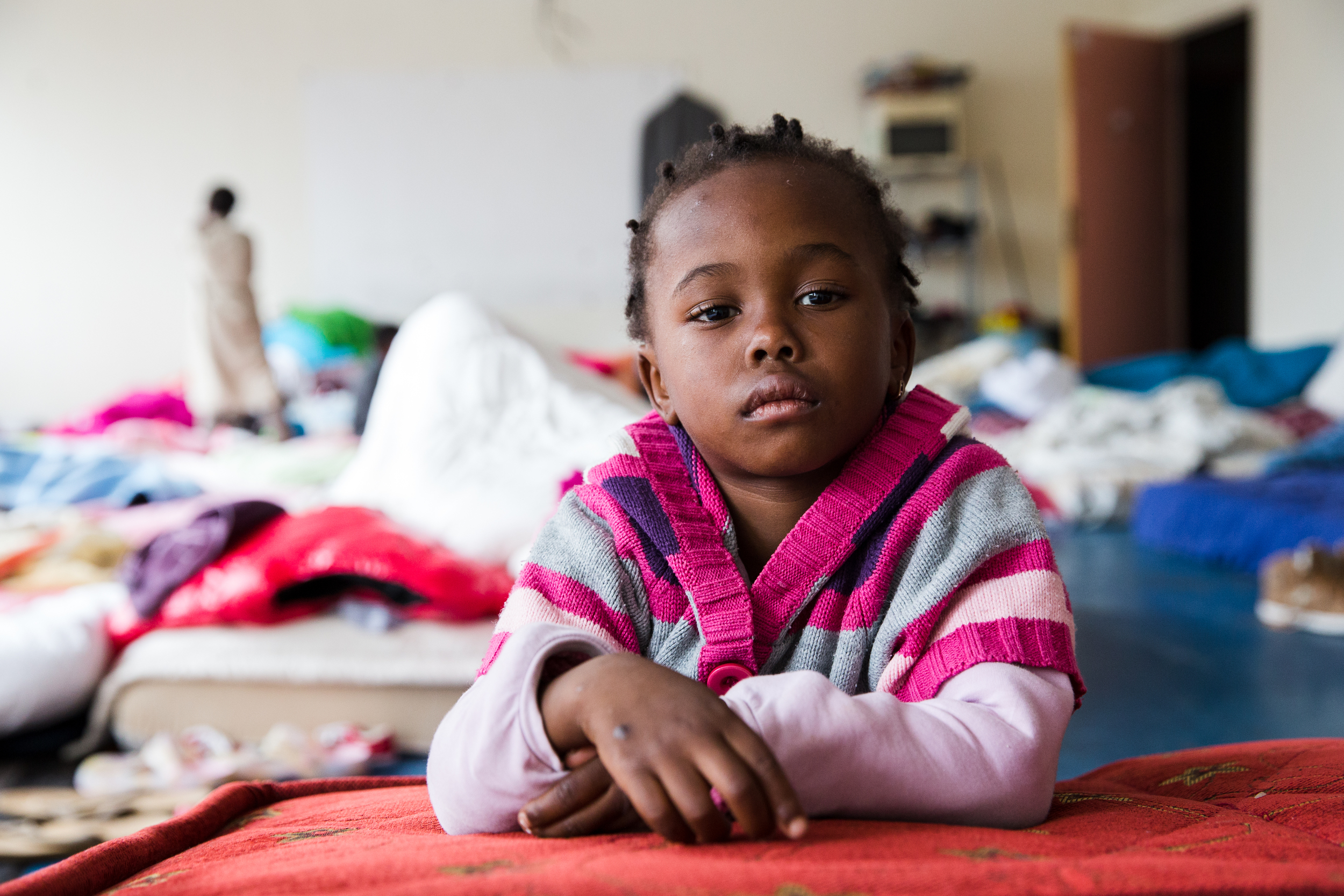
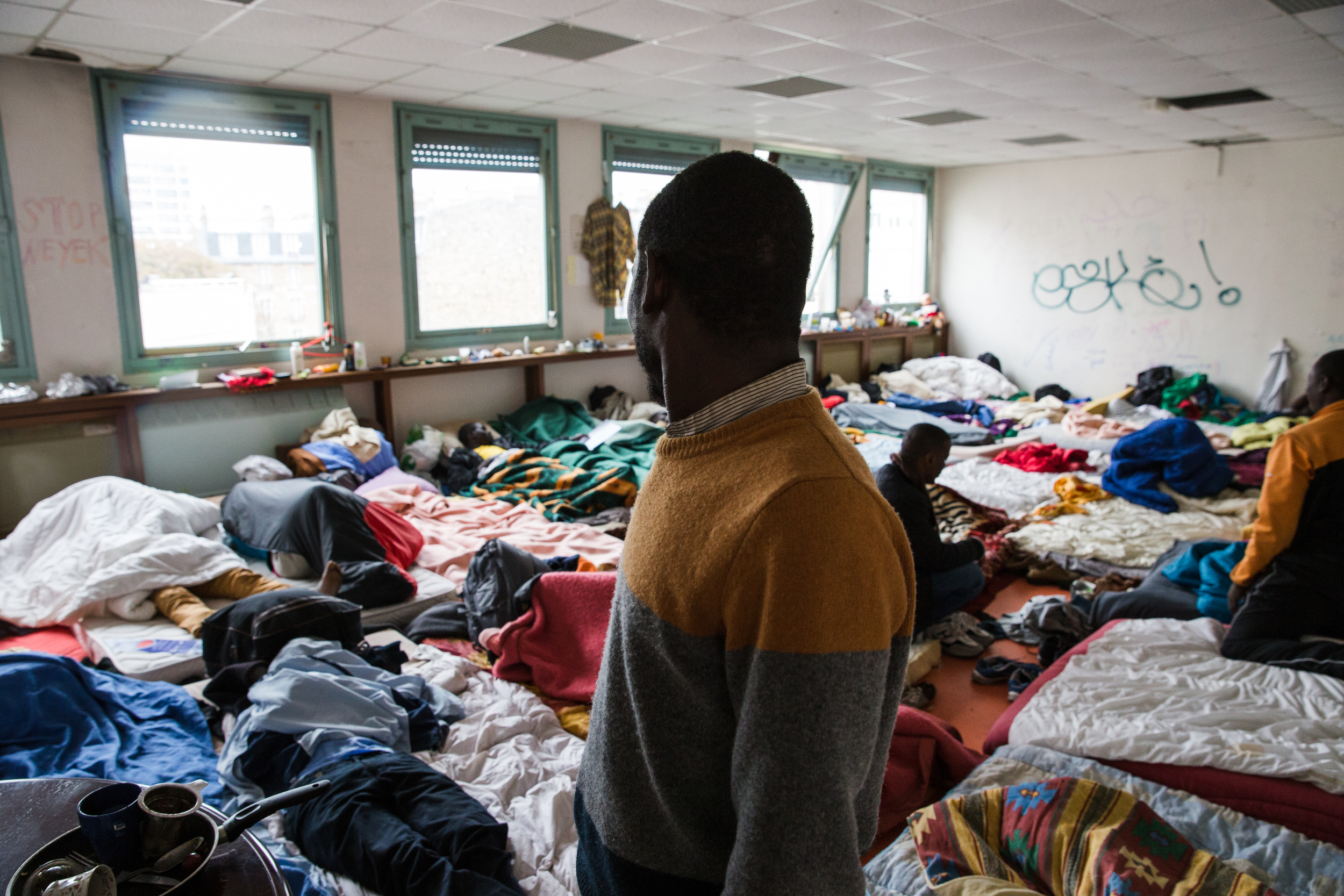
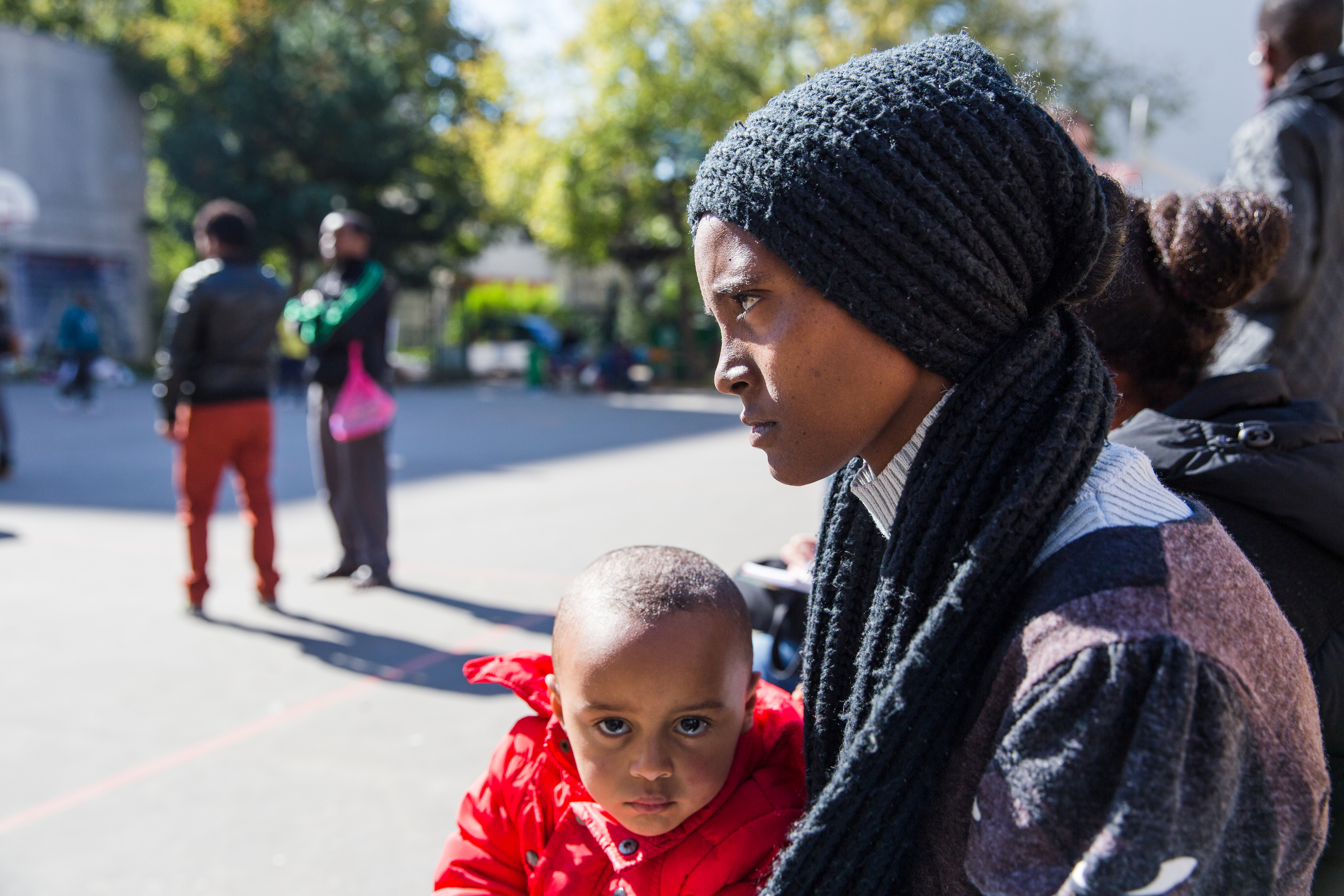
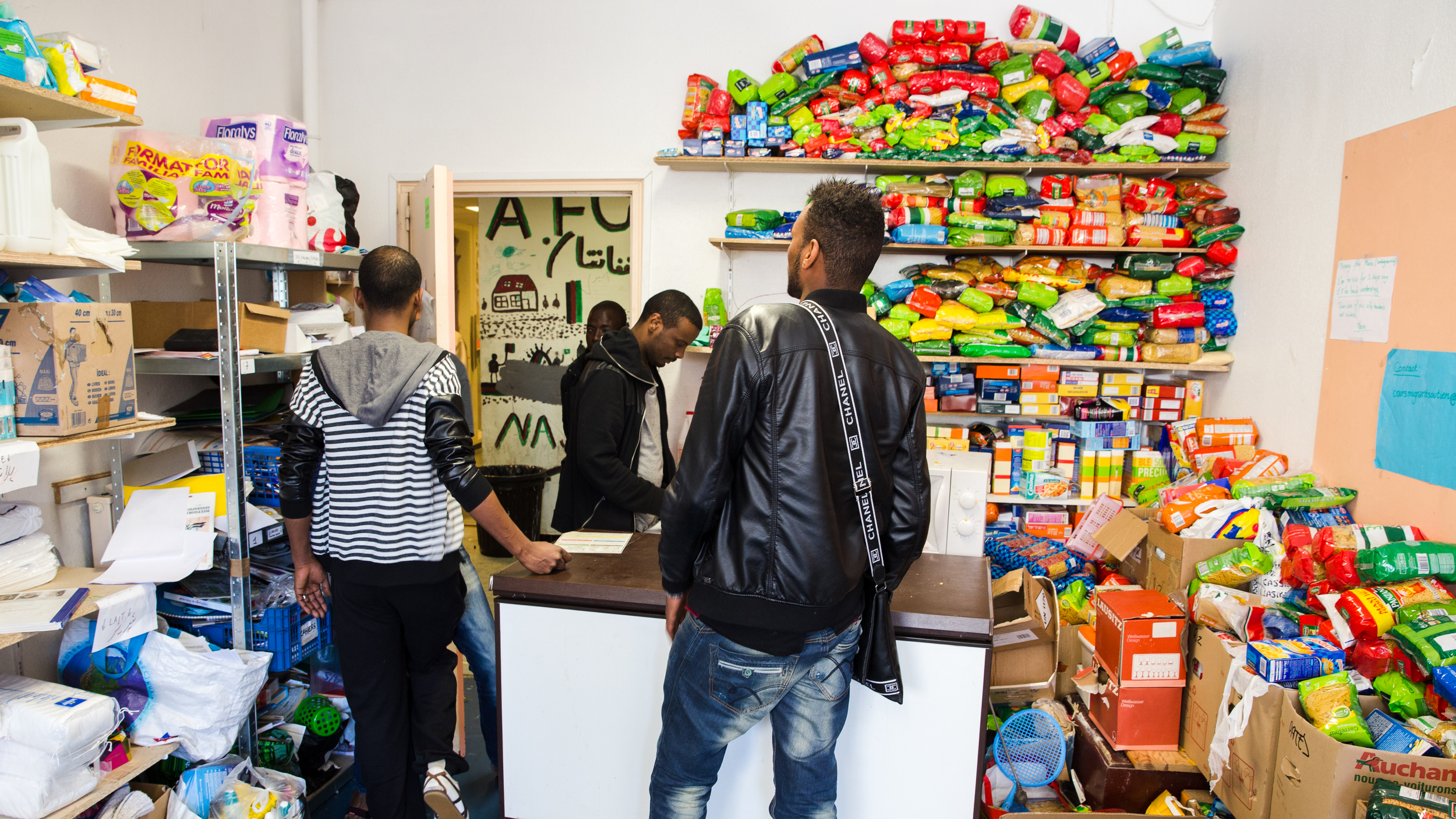
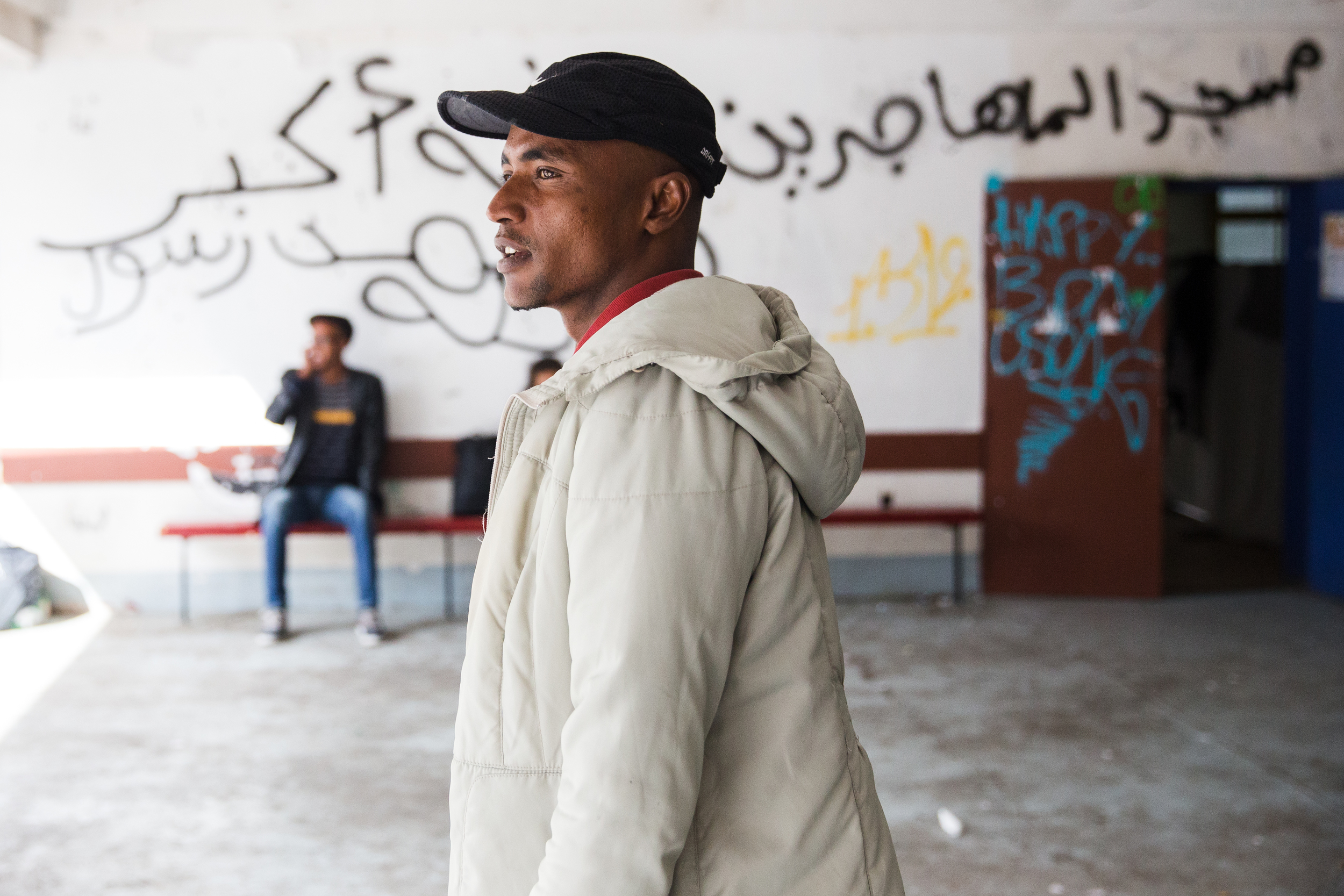
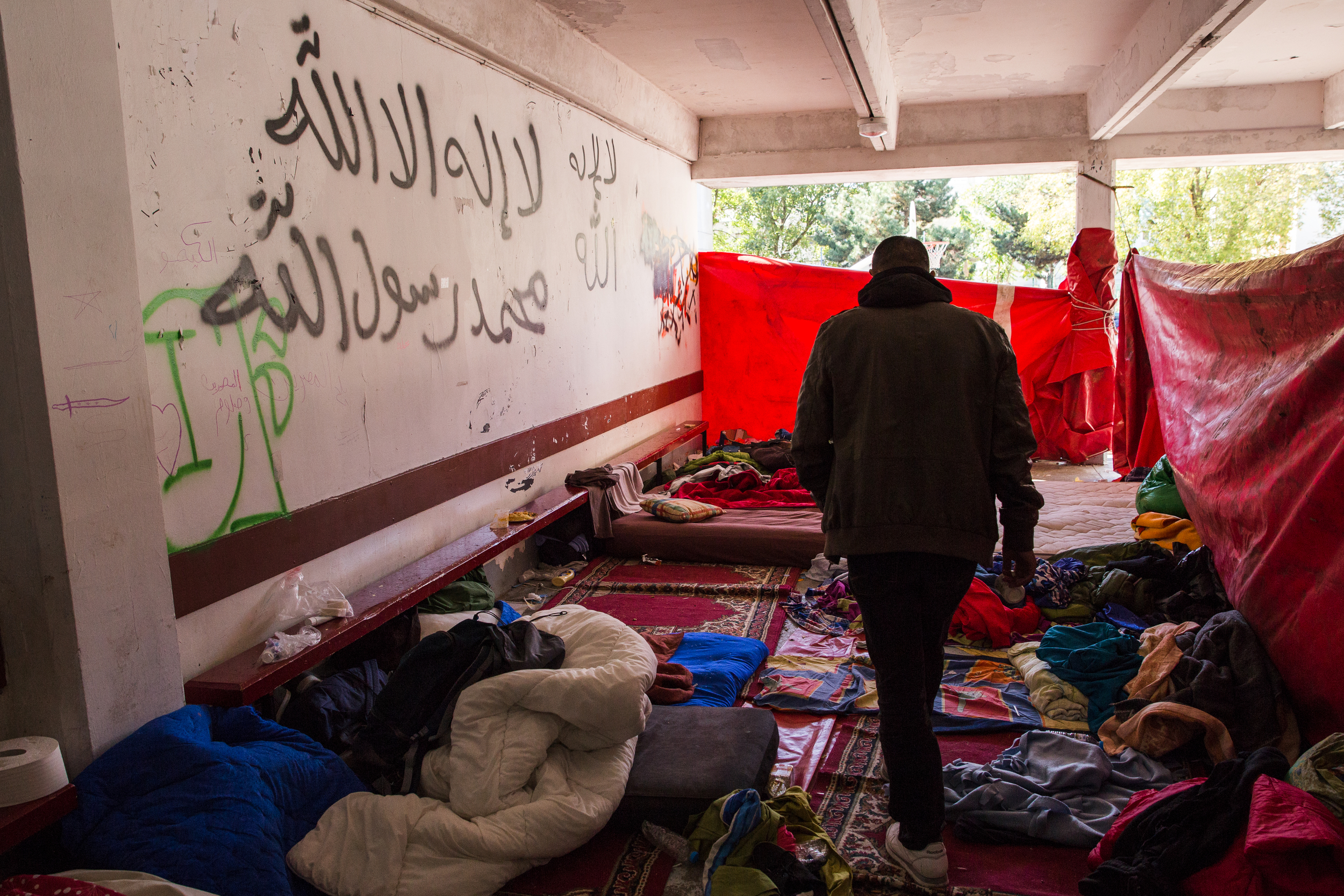
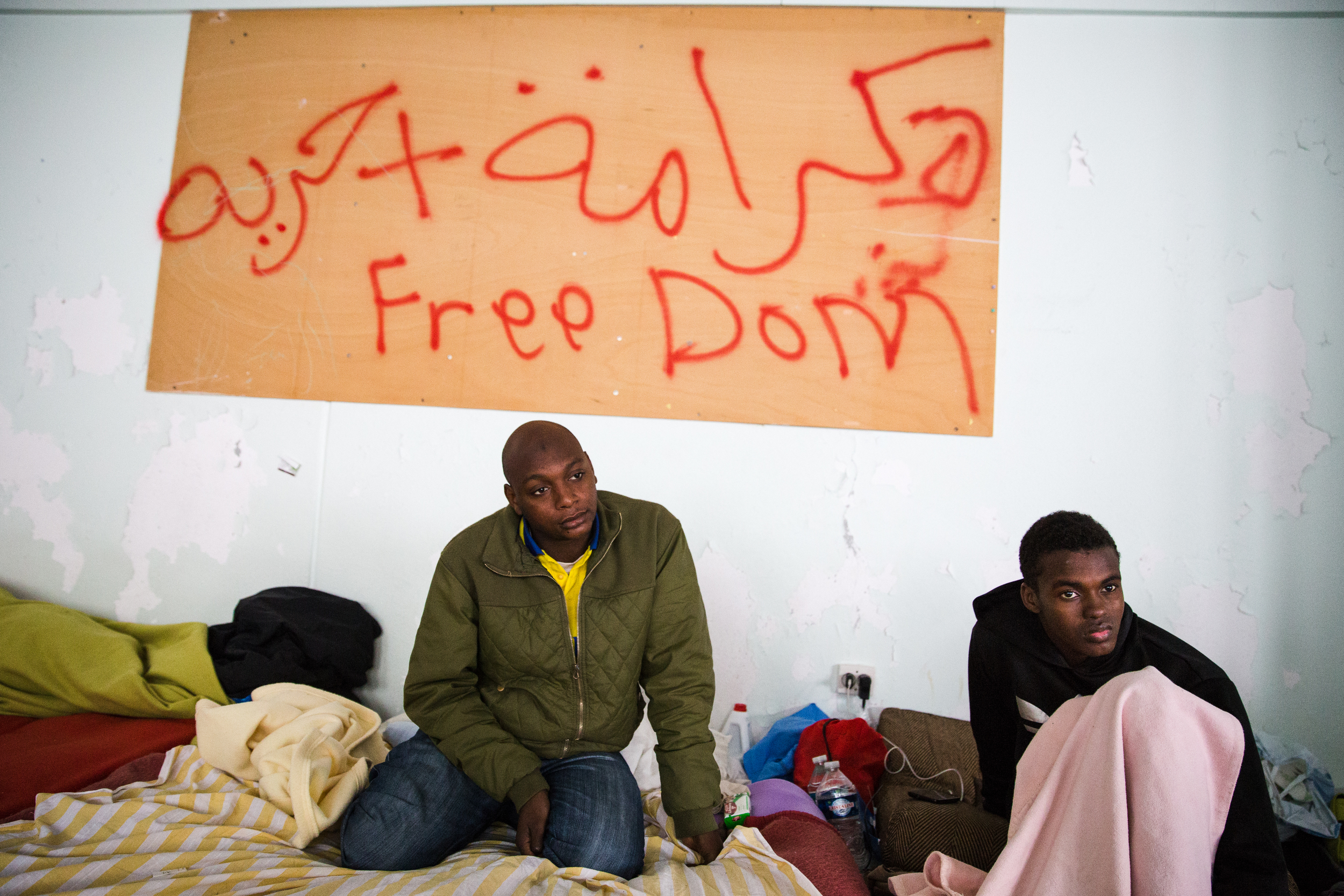
Municipal authorities opened eight new shelters over the summer and have committed to opening more in the next year, but Antoine Decourcelle of the French NGO Cimade said even the 10,000 places in new shelters the French government has promised nationwide by the end of 2016 won’t be enough.
“Many of the places where refugees are sent are overcrowded or under strict control,” he told IRIN. “For instance, in the east of Paris there is an emergency shelter for asylum seekers which is located inside a detention centre. They're allowed to come and go as they want, but still they live behind fences.”
Salah, the Sudanese asylum seeker, said he could have handled having to sleep on the streets if it had been only for a few months, “but it's too long now.”
His prolonged limbo is not unusual. It is typical of a French system plagued by bureaucracy.
Before asylum seekers can even make a claim, they have to register a fixed address with local authorities and then wait three weeks for them to send an asylum application document. Asylum seekers with no address often have to pay for one.
Once they manage to apply for asylum, the current average wait for applications to be processed is between 16 and 19 months. During that time, asylum seekers cannot work or access social welfare services such as income support and government housing. And after this interminable delay, the majority of asylum applications are rejected. In 2014, France only approved 22 percent of asylum claims (the EU’s average approval rate was 45 percent).
For all these reasons, most refugees avoid France, especially Syrians who can be fairly sure of getting refugee status in Germany or Sweden much more quickly. Recently, about 60 Syrian families were camping near the Paris ring road, the Périphérique. “Most of these refugees were going to Belgium or Sweden; some of them were left in France by their smuggler,” said Michel Roziere, who works with the NGO, Revivre.
“They are not keen on coming here,” he said. “During the two years that the asylum request takes [to process], asylum seekers don't have access to anything: no French classes, no financial help, and no right to work. Until they get an address in France, they're not allowed to access the healthcare system either. The Syrian refugees are very well aware of this.”
““The French government showed it has the necessary resources to welcome asylum seekers in good conditions.””
But Decourcelle said the lack of support for Syrian refugees in France is not the only reason they prefer to apply for asylum elsewhere. “What matters for refugees is to know that they have a community they're going to. In the end there is a much bigger Syrian community in Germany. France is not a natural destination for Syrians seeking a new country, while it is for refugees from West Africa, Sri Lanka or Bangladesh for instance.”
The French government is currently working on a new asylum law that aims to reduce the waiting time for processing claims to nine months. Local government responses are also appearing: this week Paris officials made 18 commitments to improve its response to asylum seekers including offering French classes to refugees and asylum seekers and paying a financial subsidy to Parisians who put them up in their own homes.
Among the Syrian refugees living in France, some arrived through an official resettlement programme. French President François Hollande agreed to welcome 30,000 Syrian refugees by the end of 2016. They will receive immediate refugee status and a residence permit within three months. Six hundred have already arrived, after being relocated from Germany, but about 100 have already returned to Germany. “By inviting them, the French government showed it has the necessary resources to welcome asylum seekers in good conditions,” said Decourcelle. In that case, why not offer [the same conditions] to those who are already in France and want to stay?”
Banner photo and gallery by Marie Magnin

